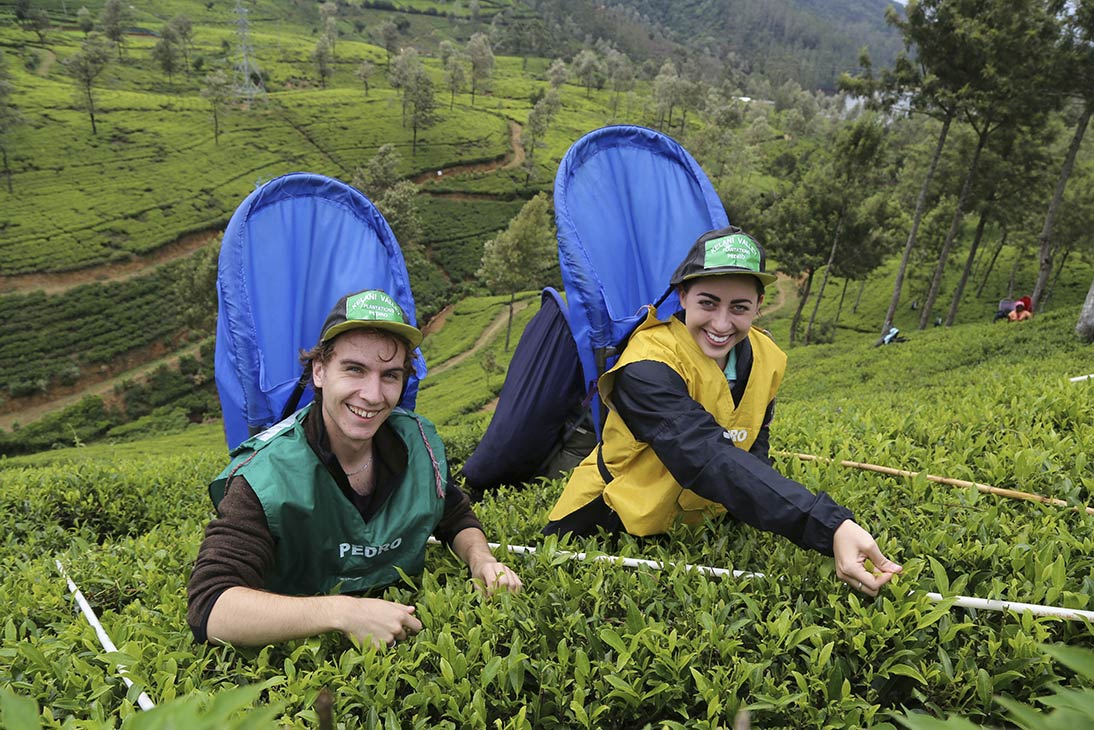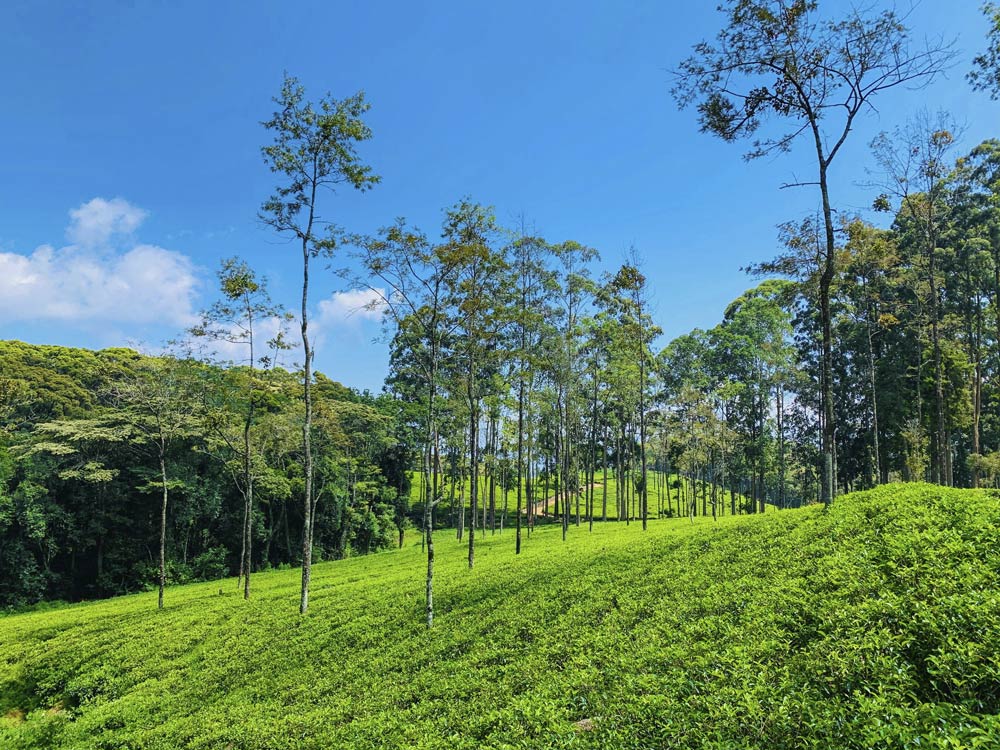
Ceylon Tea and tourism in Sri Lanka have grown hand in hand, forming a uniquely immersive experience that blends culture, heritage, and natural beauty. The island’s world-renowned tea industry doesn’t just produce some of the finest tea in the world—it also draws thousands of visitors who come to experience the land, lifestyle, and legacy behind every cup.

🍃 How Ceylon Tea Fuels Tourism:
1. Tea Estates as Tourist Attractions
Iconic tea estates like Pedro Estate (Nuwara Eliya), Dambatenne (Haputale), and Dilmah’s Tea Trails (Hatton) open their gates to tourists. Visitors walk through lush plantations, witness the meticulous process of tea plucking, and even try their hand at it—bringing the tea story to life.
2. Tea Factory Tours
Tea factories across the highlands offer guided tours that showcase the traditional processes of withering, rolling, fermenting, and drying. These hands-on experiences are educational and deeply sensory—ending with fresh tastings of Ceylon’s world-famous brews.
3. Scenic Tea Country
The rolling hills of Sri Lanka’s central highlands—Ella, Nuwara Eliya, Hatton, and Haputale—are not just productive; they’re postcard-perfect. The train ride from Kandy to Ella, winding through tea-covered valleys, is often ranked among the most beautiful train journeys in the world.
4. Tea-Inspired Luxury Stays
Heritage bungalows and tea planters’ homes have been transformed into luxury boutique hotels (e.g., Ceylon Tea Trails, 98 Acres Resort) where visitors can stay in colonial-era estates and enjoy tea-infused spa treatments, gourmet tea pairings, and sunrise views over the plantations.
5. Cultural and Historical Connection
The story of Ceylon Tea is deeply rooted in Sri Lanka’s colonial history, particularly the British era, and offers insight into how tea transformed the country’s economy, labor systems, and landscape. Tourists gain a deeper appreciation of Sri Lanka’s socio-economic history through the lens of tea.
6. Tea Festivals and Trails
Events like the Ceylon Tea Festival and guided Tea Trails allow tourists to explore different regions, learn from local tea pluckers, and engage with the community—turning tourism into a celebration of heritage and sustainability.

🌿 Why the Connection Matters:
The synergy between tea and tourism:
-
Drives rural economic development
-
Preserves cultural and historical assets
-
Supports sustainable and eco-friendly travel
-
Enhances Sri Lanka’s global brand as both a tea and travel destination
Ceylon Tea is more than a beverage—it’s a journey. From misty mountains to steamy cups, it connects travelers to the soul of Sri Lanka. In every sense, tea and tourism in Sri Lanka grow together, rooted in history and reaching toward a vibrant future.
More News about Ceylon Tea and Tourism
- Sri Lanka’s Liquid Gold: The Evolving Story of Pure Ceylon Tea
- Pedro Estate: A Tribute to Tradition, A Vision for Ceylon Tea’s Future
- Chronicles of Pure Ceylon Tea
- Learn More About Ceylon Tea
- Join Sri Lanka Travel and Tourism Group



